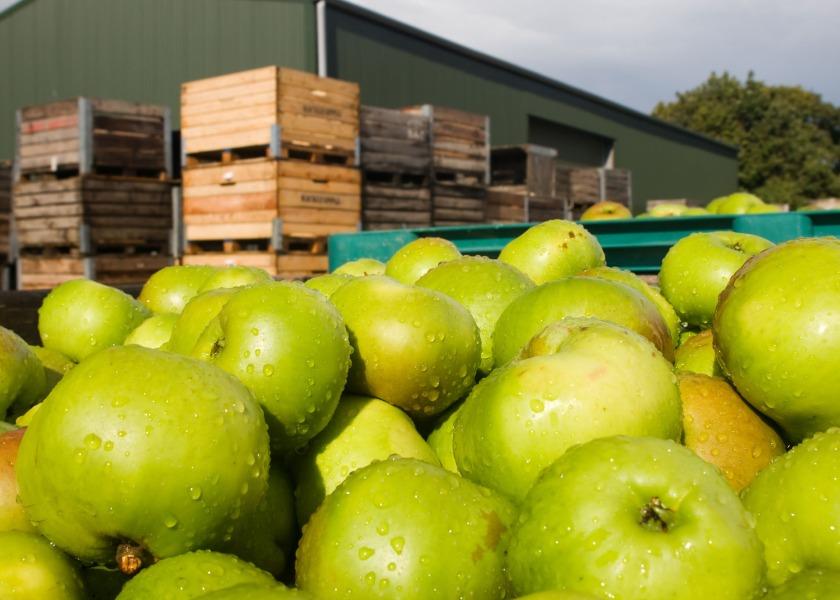How some growers are cultivating sustainability at the apple orchard

There’s reducing shrink at the supermarket and food waste at home. Then there are all the ways to not only reduce the use of Earth’s resources, but also to regenerate and improve the environment — before that fresh produce leaves the farm.
“Sourcing responsibly is on everyone’s mind,” said Cynthia Haskins, president and CEO of New York Apple Association, Fishers, N.Y. “Helping our retail partners source closer to where food is grown lowers freight costs and time and reduces their carbon footprint.”
New York apple growers are relatively close to many major cities in the U.S. and can deliver apples within 24 hours to these large markets; that’s a big sustainability selling point for Northeastern and mid-Atlantic apples.
At the farm level, growers use age-old techniques as well as high-tech strategies to reduce, reuse and regenerate.
Fowler Farms in Wolcott, N.Y., has about 2,200 acres of working apple orchards but about 5,000 acres overall because of crop rotation, said Austin Fowler, vice president of sales and marketing.
More sustainability news: Meet the seed-breeders and change-makers driving trends in cultivation
Some land is in transition for future fruiting trees. Some of the farmland is fallow acreage that is undergoing soil preparation for new plantings but left unsown for a period in order to restore its fertility. Other acreage has cover crops to enrich the soil.
“We grow certain plants that deter micro-organisms in the soil that we’d otherwise have to spray for,” Fowler said. “When you have the time to do it, this is a good thing to try.”
Bee habitat
Even though Fowler Farms, like other commercial farms, brings in bees for fruit-tree pollination, there are about 100 acres of dedicated bee habitat.
A year or two ago, staff explored around the outside of the crop blocks, pushed back some woods and instead of grass, they planted a mix of perennials and annuals.
“It’s a gorgeous mix of plants for this habitat, a bee-friendly environment. And from a maintenance standpoint, you don’t mow it for two years,” Fowler said. “In Europe, they’ve been doing it for years. It’s good for [the] environment, and it’s good for the bees we need to maintain. And it’s good for us because we’re using less diesel from mowing.”
More sustainability news: Cultivating wellness — Farm-to-pharmacy movement opens new markets for producers
The natural habitat provides more flowers that blossom at different times of year than just the apple blossoms, providing a more welcome, native environment for bees.
Reduce waste, recoup input costs
For apples that don’t make the grade for the fresh retail market, there are several options: make cider, sell it to a competitor that makes cider, sell it to processing centers for applesauce or, if the costs of any of those options are just too financially tough, just let it go.
Fowler Farms started its own line of ciders, including Honeycrisp cider, using delicious apples that don’t look good enough for the supermarket.
Sending ugly-delicious fruit for processing is last-ditch effort. Retail market fruit can be $1 a pound, whereas processing fruit can be as low as 11 cents a pound, Fowler said.
“This year, there will be a lot of fruit from New York that won’t make the grade,” he said, because of a late May frost. It may cost too much to pick, depending on the grower’s situation.
Organics
Fowler Farms has about 30 acres of organic apple orchards. In 2022, the company hired an organic field manager to focus on it exclusively.
“Because we do know there will be a future there, especially with local organic,” Fowler said. It’s to look at what varieties work for organic here — and to see what strategies actually may be more efficient or cheaper for our conventional crops.”
For instance, they might learn that a particular pesticide isn’t needed as much when there are certain nets that keep hail off, as well as undesirable insects.
“We’re learning some things from organic,” he said.
Learn: More about apples from PMG







